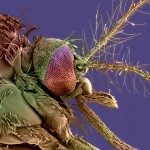Link to Pubmed [PMID] – 40028951
Link to DOI – 10.1051/medsci/2025009
Med Sci (Paris) 2025 Feb; 41(2): 137-144
In recent decades, dengue has become a global issue due to its rapid spread and significant public health impact. Climate change is recognized as a key factor in the geographical spread of dengue and its vectors. Climate change affects dengue transmission through changes in temperature and precipitation, which affect both vectors and arboviruses. Climate change can also disrupt human migration patterns facilitating the spread of the virus and the invasion of vectors into new regions. Understanding the impact of climate change on dengue and its vectors is essential for developing strategies to prevent and control the disease. Appropriate mosquito control strategies, enhanced epidemiological surveillance and tailored public health systems are needed to mitigate the increasing burden of dengue in the context of climate change.Les effets du changement climatique sur l’émergence de la dengue.La dengue est une infection virale dont l’agent causal, le virus de la dengue (DENV), est transmis par les moustiques du genre Aedes. Au cours des dernières décennies, la dengue est devenue une préoccupation majeure en raison de sa propagation rapide et de son impact significatif sur la santé publique. Le changement climatique est reconnu comme un facteur majeur de l’expansion géographique de la dengue et de ses vecteurs. Le changement climatique influence la transmission de la dengue via des changements de température et de pluviosité affectant les moustiques vecteurs et l’arbovirus. Le changement climatique peut également perturber les migrations humaines, qui facilitent alors la dispersion du virus, et favoriser l’expansion de moustiques vecteurs vers de nouvelles régions. Il est essentiel de comprendre l’impact du changement climatique sur la dengue et ses vecteurs pour élaborer des stratégies efficaces de prévention et de contrôle de la maladie. Des stratégies adaptées de lutte contre les moustiques, une surveillance épidémiologique renforcée et un système de santé publique plus adaptée sont nécessaires pour atténuer le fardeau croissant de la dengue dans un contexte de changement climatique.



